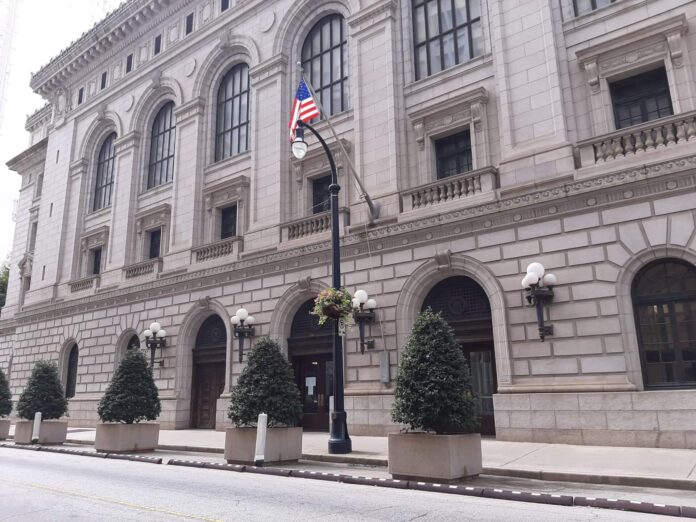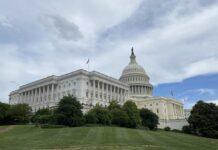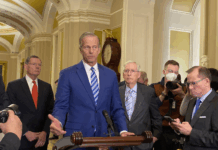
(Georgia Recorder) — A federal appellate court is set to hear a case Tuesday centered on a five-year debate over whether the national right-leaning group True the Vote used mass voter challenges to intimidate minority voters.
The U.S. Court of Appeals for the Eleventh Circuit will hear arguments in a case in which plaintiffs, including a voting rights group founded by Stacey Abrams, contend that the case has national implications. Attorneys from both sides will have 15 minutes to present their cases during Tuesday’s hearing.
Mass voter challenges have been a mainstay in Georgia since the 2020 presidential election, when Democrat Joe Biden narrowly defeated Republican Donald Trump by about 12,000 votes in the state.
According to the Abrams-founded Fair Fight Action and others who filed suit, True the Vote’s actions likely violated the Voting Rights Act by using inaccurate voter registration information and voter intimidation tactics such as posting citizen watchdogs to monitor people casting ballots.
This case stems from True the Vote’s efforts to challenge the voter eligibility of about 385,000 Georgia voters prior to the January 5, 2021 runoff election, when Democrats would take control of the U.S. Senate following historic wins by Georgia Democratic Sens. Raphael Warnock and Jon Ossoff.
In January 2024, Gainesville U.S. District Court Judge Steve C. Jones concluded last year that Fair Fight did not prove True the Vote’s actions constituted voter intimidation prior to the dual Senate runoffs.
However, Jones criticized the conservative group’s “reckless” methods in compiling a list of voters.
Opponents of mass challenges claim that groups targeting Democratic-leaning counties are misusing the election law to challenge large numbers of voters as ineligible.
Many conservatives have argued that voter registration lists need to be purged of ineligible voters, while Democrats and progressive activists have alleged that mass voter challenges aim to intimidate and remove voters who should remain eligible.
Fair Fight alleges that True the Vote’s list in the 2021 runoff included a disproportionate number of Black, brown, and first-time voters who helped secure the 2020 presidential race for Biden.
“The 385,000 mass challenge in the lead up to the January 5, 2021, runoff was the largest mass challenge ever filed in this way in the country,” Fair Fight CEO Lauren Groh-Wargo said.
There’s been a debate over whether some new voting rules would improve voter confidence or if they are just attempts to appease Trump supporters who say he lost because of unfounded claims of widespread election fraud.
Georgia was at the center of the push to overturn the election results after Trump lost to Biden, becoming the first Republican presidential candidate to lose in Georgia in three decades. Trump’s narrow loss was reaffirmed through three counts, including one recount that was done by hand. Multiple recounts and audits after the 2020 election confirmed it was not tainted by widespread fraud.
According to state law, county election boards must find sufficient probable cause to move forward with an investigation when a voter does not appear to reside at their registered address, lists a non-residential address on their registration, or has other reasons that could disqualify them.
True the Vote founder Catherine Engelbrecht said her group will argue that their tactics promote fair elections when they return to Georgia court Tuesday.
“This isn’t just about one hearing — it’s about holding the line for election integrity and defending the voice of we the people,” she said in a statement. “Our legal team is locked in, sharpening every detail of our strategy. Our fight is to expose truth, uphold principle, and bring transparency to a process.”
Marc Elias, an attorney with Elias Law Firm and founder of left-leaning Democracy Docket, argues that the mass voter challenges in the True the Vote case are an egregious violation of Section 11(b) of the Voting Rights Act, which guarantees that voters will not face intimidation during the voting process.
“Now, courts have been chipping away against lots of the federal voting rights protections. I’m not going to sugarcoat that,” Elias said. “That has been true at the U.S. Supreme Court. It’s been true at the lower levels. But the fact is, attempts to intimidate voters is still illegal, and 11 B is still good, valid law throughout the country.”






